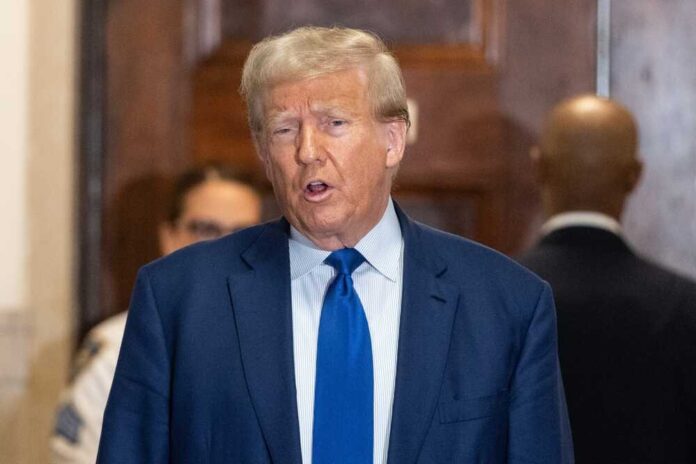
The forthcoming session in the Federal Court concerning Special Counsel Jack Smith’s lawsuit against ex-President Donald Trump has seen an intriguing development. The court has directed attorneys to be ready to discuss the legality of Smith’s appointment. This twist follows the submission of a friend-of-the-court brief by Ed Meese, who served as Attorney General under President Reagan, contending that Smith’s appointment breaches the Appointments Clause of the Constitution.
Meese’s brief makes a strong case against Smith’s appointment, comparing him to a “naked emperor.” He argues that as a private citizen, Smith lacks the authority to represent the United States in court or the ongoing prosecution against Trump. Meese is joined by scholars Steven G. Calabresi and Gary S. Lawson in challenging Smith’s authority.
The brief raises essential questions about the legality of Smith’s appointment and the implications for the American rule of law. Meese argues that only individuals appointed as federal officers have the authority to conduct criminal prosecutions. He points out that as a Special Counsel, Smith does not meet the criteria for such an appointment.
According to Meese, Smith’s appointment lacks statutory authority and violates the Appointments Clause. While Attorney General Merrick Garland cited statutory authority for the appointment, Meese argues that no statute permits a private citizen to hold such extraordinary criminal law enforcement power. He further contends that the Attorney General, rather than the President, with the advice and consent of the Senate, does not have the specific authority to appoint a Special Counsel.
Meese emphasizes that the Appointments Clause requires that department heads appoint inferior officers only if directed by Congress through specific statutes. He asserts that no such statute exists for the Special Counsel position. If Smith is considered a valid officer, he should have been appointed through the presidential appointment and senatorial confirmation process.
Meese believes that the court can address Appointments Clause challenges, even if they are raised for the first time on appeal. He argues that deciding the constitutionality of Smith’s appointment now would save judicial resources, as the issue would likely resurface if the case were remanded to the District Court. He urges the court to invalidate Smith’s appointment.
This amicus brief has caught the court’s attention, as evidenced by their order instructing both parties’ counsel to be prepared to address the issues raised in the brief during oral arguments. Will Scharf, attorney for former President Trump, views this order as a sign that the court is taking the amicus briefs seriously.
The hearing, scheduled for Tuesday, promises to be crucial in determining the constitutionality of Smith’s appointment and the legitimacy of the ongoing prosecution against Trump. The arguments presented by Meese and his colleagues shed light on the complexities of the Appointments Clause and its implications for the rule of law. The court’s decision will have far-reaching consequences, underscoring the importance of this case in our nation’s legal history.













